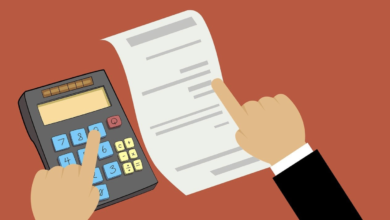
In today’s digital age, the internet has opened up a world of opportunities for individuals to earn money online. South Africa, with its growing internet penetration and entrepreneurial spirit, is no exception. Whether you are looking to supplement your income or start a full-time online business, this step-by-step guide will provide you with valuable insights on how to earn money online in South Africa.
Advantages of earning money online
Earning money online offers numerous advantages, especially for individuals in South Africa. Firstly, it provides the flexibility to work from anywhere, allowing individuals to escape the limitations of traditional employment. This is particularly beneficial in a country like South Africa, where long commutes and limited job opportunities can be a challenge. Additionally, earning money online allows for a diverse range of income streams, reducing the risk of relying on a single source of income. Lastly, the potential for scalability is immense, as online businesses can reach a global audience without the need for physical infrastructure.
Popular ways to earn money online in South Africa
There are several popular ways to earn money online in South Africa. One of the most common methods is through freelancing. Websites such as Upwork, Freelancer, and Fiverr connect freelancers with clients from around the world, offering a wide range of opportunities in fields such as writing, graphic design, programming, and more. Another popular option is starting an e-commerce business. With platforms like Shopify and WooCommerce, individuals can easily set up online stores and sell products or services to a global customer base. Affiliate marketing, online tutoring, and content creation are also viable options for earning money online in South Africa.
Step-by-step guide on how to start earning money online
- Identify your skills and interests: The first step in earning money online is to identify your skills and interests. This will help you determine which online income streams are the best fit for you. Consider your strengths, experience, and passion when making this decision.
- Research online income streams: Once you have identified your skills and interests, research different online income streams that align with your abilities. Look for opportunities that have a demand in the market and offer potential for growth.
- Set up your online presence: Establishing a strong online presence is crucial for earning money online. Create a professional website or blog to showcase your skills and attract potential clients or customers. Utilize social media platforms to promote your online business and engage with your target audience.
- Choose the right online income streams: Based on your research, choose the online income streams that best suit your skills and interests. Whether it’s freelancing, e-commerce, affiliate marketing, or any other method, focus on the ones that align with your strengths and offer long-term potential.
- Develop a business plan: Treat your online income venture as a business. Create a detailed business plan that outlines your goals, target audience, marketing strategies, and financial projections. This will provide you with a roadmap for success and help you stay focused.
- Start small and scale gradually: It’s important to start small and gradually scale your online income streams. This will allow you to learn and adapt along the way, without taking on too much risk. As you gain experience and confidence, you can expand your online business and explore new opportunities.
- Stay consistent and learn from failures: Earning money online requires consistency and perseverance. Don’t get discouraged by failures or setbacks, but instead, use them as learning opportunities. Stay updated with the latest trends and continuously improve your skills to stay competitive in the online marketplace.
Choosing the right online income streams for South Africans
South Africans have unique opportunities and challenges when it comes to earning money online. It’s important to choose online income streams that are well-suited for the South African market. Here are a few factors to consider:
- Local demand: Identify online income streams that cater to the local market. This could include services such as digital marketing, website development, or online tutoring in subjects specific to South African education systems.
- Payment options: Consider the payment options available in South Africa. Ensure that the online income streams you choose offer convenient payment methods for South African customers or clients. PayPal, Payfast, and direct bank transfers are popular options in South Africa.
- Mobile accessibility: South Africa has a high mobile penetration rate, so it’s crucial to choose online income streams that are mobile-friendly. Optimize your website or online store for mobile devices to reach a wider audience and improve user experience.
Online marketplaces and platforms for earning money in South Africa
There are several online marketplaces and platforms that cater specifically to South Africans looking to earn money online. Some popular options include:
- Gumtree: Gumtree is a classified advertising website where individuals can offer services, sell products, or find job opportunities.
- Skillshare: Skillshare is an online learning platform that allows individuals to create and sell their own courses. If you have expertise in a particular field, you can earn money by teaching others.
- Takealot: Takealot is one of the largest e-commerce platforms in South Africa. You can become a seller on Takealot and reach a wide customer base.
- Locanto: Locanto is another classified advertising website that allows individuals to offer services, sell products, or find job opportunities.
- Etsy: If you have a talent for creating handmade crafts or unique products, Etsy is a popular platform for selling your creations.
Tips for success in earning money online in South Africa
- Stay motivated and disciplined: Working online requires self-motivation and discipline. Set goals, create a schedule, and hold yourself accountable to stay on track.
- Network and collaborate: Build connections within your industry and look for opportunities to collaborate with other professionals. Networking can lead to valuable partnerships and new business opportunities.
- Stay updated with industry trends: The online marketplace is constantly evolving, so it’s important to stay updated with the latest industry trends. Attend webinars, read industry blogs, and participate in online communities to stay ahead of the curve.
Overcoming common challenges in earning money online
While earning money online offers countless opportunities, there are also common challenges that individuals may face. These include:
- Internet connectivity: In South Africa, internet connectivity can be unreliable and expensive. Invest in a reliable internet connection and consider alternative options such as mobile data to overcome this challenge.
- Financial management: As an online entrepreneur, it’s important to effectively manage your finances. Keep track of your income, expenses, and taxes to ensure financial stability and compliance with regulations.
- Competition: The online marketplace is highly competitive. Differentiate yourself by offering unique value propositions, providing exceptional customer service, and continuously improving your skills.
Resources and tools for earning money online in South Africa
There are several resources and tools available to help you in your journey to earn money online in South Africa. Here are a few recommendations:
- Google Analytics: Google Analytics is a powerful tool that provides insights into your website’s performance, including visitor demographics, traffic sources, and user behavior.
- Canva: Canva is a user-friendly design tool that allows you to create professional graphics for your online business, even if you have no design experience.
- HubSpot: HubSpot offers a range of marketing and sales tools to help you attract, engage, and delight your customers.
- Udemy: Udemy is an online learning platform with a wide range of courses on various topics, including online business, digital marketing, and entrepreneurship.
Conclusion: Unlocking financial freedom through online income in South Africa
Earning money online in South Africa has the potential to unlock financial freedom and provide individuals with the flexibility and opportunities they desire. By following this step-by-step guide and utilizing the resources available, you can embark on your journey to earn money online and create a successful online business. Remember to stay motivated, continuously improve your skills, and adapt to the changing online landscape. With determination and perseverance, you can achieve financial independence and unlock a world of possibilities through online income in South Africa.




